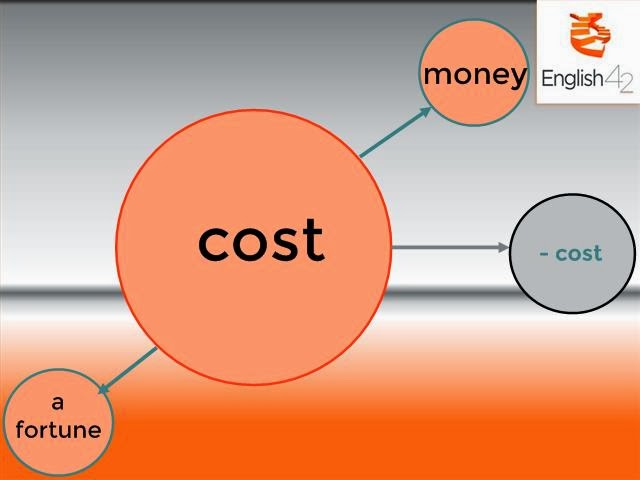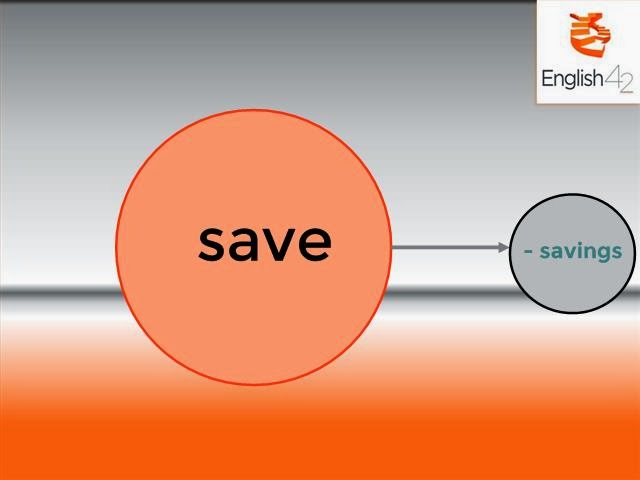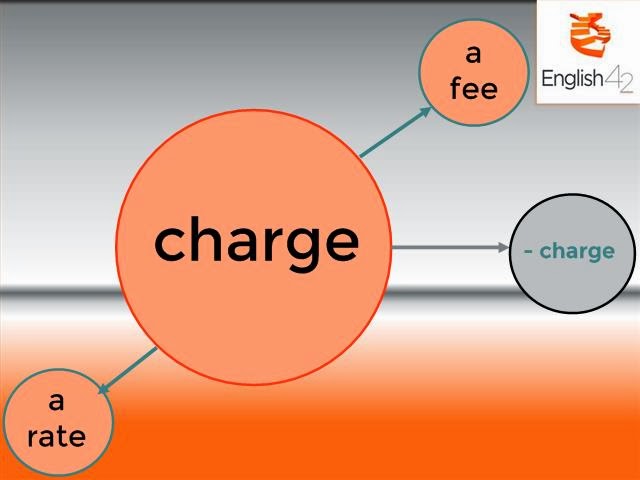What's the difference between a customer and a consumer? What's the difference between a product and a consumer good? And what exactly is a brand? Today, we'll look at these words and we'll learn new vocabulary which we can use when we're talking about consumer and brand image.
All week on our Facebook page (3-7 February) we've been looking at how to define things in English. Here are a couple of general English (and general knowledge!) quizzes which we have featured...
The most recent post (on "Businesstime Friday") asked students to define different consumer-related words.
Here are the answers to that quiz:
A consumer good is a product which is bought by consumers.
This definition may not be clear enough, however. We need to understand exactly what a product is, and exactly what a consumer is. Let's look at product first.
A product is an object which is made for sale.
This seems clear. It defines a product as an object (a thing) - which, technically, makes it different to a service. A service is abstract, intangible: in other words, you can't see a service, touch it, smell it, taste it or hear it. A product is the opposite: it's something which you can hold in your hands.
Let's have a quick quiz to check that we understand this. Which of the following "consumer goods" are products, and which are services?
Let's have a quick quiz to check that we understand this. Which of the following "consumer goods" are products, and which are services?
a holiday in Italy
a smartphone
a bank account
a banana
an online English course
[scroll down for the answers]
The answers are:
a holiday in Italy PRODUCT
a smartphone PRODUCT
a bank account SERVICE
a banana PRODUCT
an online English course SERVICE
Some banks and online services like to confuse us, however: they call their services (such as a mortgage account or an online music player) "products". Technically, they're not products - but you should be aware of this strange language.
Let's move onto consumer.
A consumer is a person who buys a product/service for their own use.
This is different to a customer.
A customer is a person or organisation which buys a product/service.
When you are a consumer, you are also a customer.
For example, when you buy a hamburger in a fast-food restaurant, you're "buying a product" - so you're a customer of the restaurant. But you're also "buying a product for your own use": you will eat the burger sooner or later, instead of selling it onto another person.
As an organisation, you can only be a customer. The fast food restaurant needed to buy bread from a supplier to make that burger. They are a customer of that supplier. However, they're not eating the meat - that's your job as a consumer!
For example, when you buy a hamburger in a fast-food restaurant, you're "buying a product" - so you're a customer of the restaurant. But you're also "buying a product for your own use": you will eat the burger sooner or later, instead of selling it onto another person.
As an organisation, you can only be a customer. The fast food restaurant needed to buy bread from a supplier to make that burger. They are a customer of that supplier. However, they're not eating the meat - that's your job as a consumer!
Let's have another quick quiz to check our understanding. Which of these people/organisations are customers, and which are consumers?
[scroll down for the answers]
Now, let's go back to our definition of consumer goods.
- a person who books a flight to Italy
- a company which books a flight to Italy for an employee’s business trip
- a businessman who buys advertising space in a newspaper
- a couple who go to the cinema together
- a teenager who buys a video game
And the answers...
- a person who books a flight to Italy CONSUMER
- a company which books a flight to Italy for an
employee’s business trip CUSTOMER
- a businessman who buys advertising space in a
newspaper CUSTOMER
- a couple who go to the cinema together CONSUMERS
- a teenager who buys a video game CONSUMER
Now, let's go back to our definition of consumer goods.
A consumer good is a product which is bought by consumers.
Which of the products/services in the table above could be described as consumer goods?
- The flight to Italy?
- The advertising space?
- The cinema tickets?
- The computer game?
- The flight to Italy?
- The advertising space?
- The cinema tickets?
- The computer game?
The answer is that they are all consumer goods, except for the advertising space - and the flight to Italy, if it is being bought by a business for one of its employees, and not by a person for their holiday.
********************************************************************************
ACTIVITY IDEA 1
Think of the company you work for or a company you have worked for or or a company you’d like to work for.
What does the company sell – products or services?
Who does the company sell to – consumers or customers?
The answers to these questions affect everything: especially the company’s mission, marketing strategies and operations.
********************************************************************************
Let’s look, finally, at brands. It’s difficult to define brands accurately, but this is (arguably) the best definition....
A brand is a company which has a well-known identity.
This definition tells us several things:
Firstly, a brand is an organisation. It’s usually a company, and it’s usually a company which wants to sell to consumers (not customers). Think of a brand, and you’re probably thinking of a company which makes consumer goods. (e.g. Nike)
A brand can also be a not-for-profit organisation. (so the definition, which says “company” isn’t completely accurate) Examples are charities like Amnesty International or an animal-protection society.
Secondly, a brand has a well-known identity. This identity defines the brand in a very simple way, and members of the public can easily recognise it. The brand expresses its identity in one or two ways:
(1.) through a logo. AND/OR (2.) through a slogan.
Logos are images which represent brands.
Logos are ubiquitous and innovative: in other words, they can be seen everywhere, and they are different and new. Unfortunately, a Business English blog is not the place to learn about the best logos. We can only say that if you have a brand, you need a logo. Let’s move on...
A slogan is a short sentence or phrase which is associated with a brand.
Slogans are more interesting for language learners than logos. We see them all the time...
A good slogan does one of two possible things:
1. A good slogan describes the brand.
Examples of this are KFC’s “Finger Lickin’ Good” (apparently, when you finish eating a KFC meal, you lick your fingers to keep the taste going), or Nokia’s “Connecting People” (as their cellphones used to do).
Examples of this are KFC’s “Finger Lickin’ Good” (apparently, when you finish eating a KFC meal, you lick your fingers to keep the taste going), or Nokia’s “Connecting People” (as their cellphones used to do).
A descriptive slogan must be honest. It should not create a false identity by claiming to do something the brand doesn’t do. (For example, Ryanair could never write a slogan like, “Luxury and customer care”!)
OR
McDonald’s is an example of a brand which wants you to have the positive feeling of being in one of its restaurants (I’m Loving It) – but, unlike Nike or EBay - without telling you to do something.
EBay tells the public to “Buy It. Sell It. Love It.” and Nike tells you to “Just Do It”. Some slogans use imperatives: in other words, they tell you to do something in simple language. (Just like your teacher told you to “Do your homework” or your parents told you to “Tidy your room”)
...always always always try it yourself first. Be adventurous with your English, be creative and be as accurate as possible!
********************************************************************************
ACTIVITY IDEA 2To expand your vocabulary, try studying some collocations which are used every day in conversations and meetings about brands and products.
Try to match the phrases with the definitions.
The phrases are: brand loyalty, brand image, brand awareness, product launch, product lifecycle and product endorsement.
DEFINITION 1: How members of the public (and possible consumers) see and think about a brand.
DEFINITION 2: A celebrity advertising a consumer good.
DEFINITION 3: Consumers continuing to buy a product (or range of products) because of their positive feelings about it.
DEFINITION 4: How many members of the public know about a brand (including its logo and/or slogan).
DEFINITION 5: A marketing/advertising event which announces a new consumer good.
DEFINITION 6: A process where a consumer good is born, becomes popular and (eventually) becomes a product of the past.

















